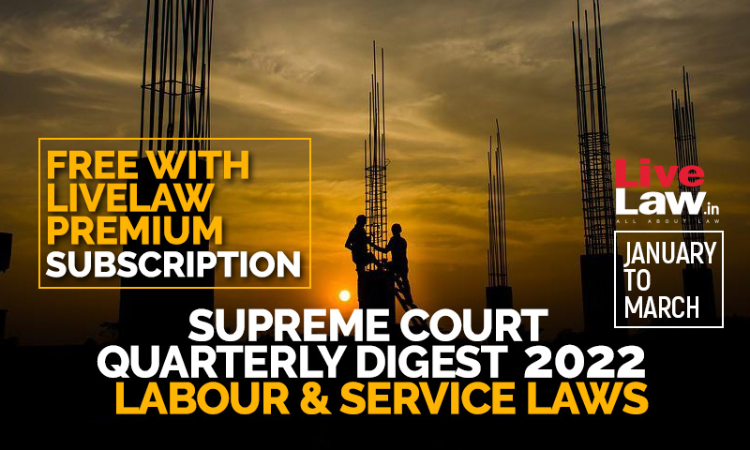Supreme Court Quarterly Digest 2022- Labour & Service Laws (Jan-March)
LIVELAW NEWS NETWORK
21 Jun 2022 5:55 PM IST

Next Story
21 Jun 2022 5:55 PM IST
Administrative Law - Natural Justice - Importance of natural justice and an opportunity of hearing to be afforded to the affected party in any administrative or quasi judicial proceedings. (Para 28) Esteem Properties Pvt. Ltd. v. Chetan Kamble, 2022 LiveLaw (SC) 226 Administrative Law - Natural Justice - Importance of natural justice and an opportunity of hearing to be afforded to...
